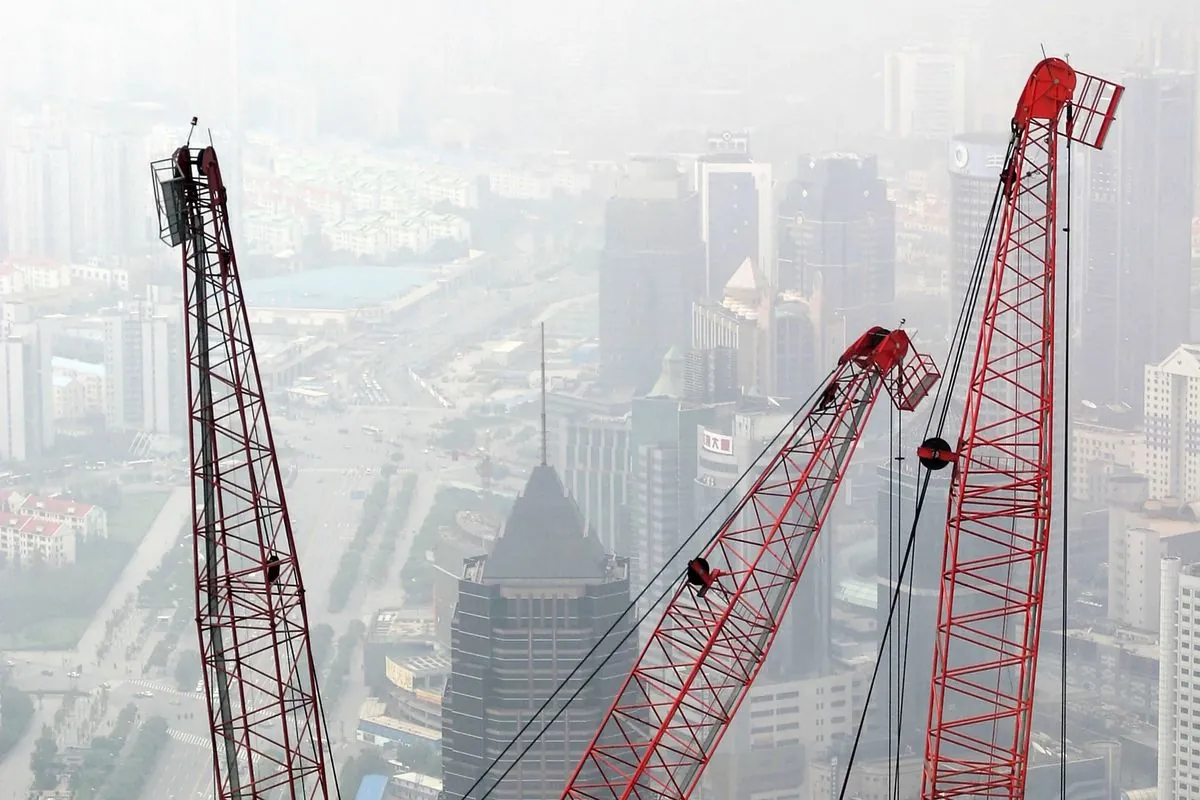China's Property Reform: Slow Progress Towards Long-Term Stability
China's property sector reform faces slow uptake of government measures. Only 4% of a 300 billion yuan relending scheme has been used, as policymakers prioritize long-term stability over quick fixes.

China's ambitious plan to address its property market challenges is experiencing a sluggish start, with only 4% of a 300 billion yuan ($42 billion) relending scheme being utilized by local governments and state firms. This slow progress comes as policymakers reaffirm their commitment to substantial reforms, potentially exacerbating the industry's current downturn.
The property sector, which accounts for approximately 30% of China's GDP, has been a cornerstone of the country's economic growth since the late 1990s. However, the government is now determined to reshape this crucial industry, even if it means enduring a prolonged period of adjustment and economic strain.
In May 2023, China unveiled what it termed "historic" measures to tackle its housing crisis. Local governments were encouraged to purchase unsold residences from developers and convert them into public housing. According to state media reports, over 80 cities have announced plans aimed at reducing excess supply. However, the implementation has been limited, with only a handful of cities, such as Chongqing and Fuzhou, actually making purchases, totaling fewer than 10,000 apartments.

The scale of the challenge is significant. Goldman Sachs analysts estimated in June 2024 that China would need to invest approximately 2 trillion yuan to absorb just 10% of the nationwide supply glut to stabilize falling prices. This slow progress has led UBS analysts to revise their 2024 GDP growth forecast downward to 4.6% from 4.9%, citing the ongoing property market downturn as a contributing factor.
One reason for the cautious approach is that officials are grappling with profound market changes and need time to assess their impact. Local governments now have greater autonomy in setting housing market rules, such as removing price caps on new projects. Additionally, there are indications of further policy support on the horizon. Bloomberg reported in August 2024 that Beijing is considering allowing local governments to fund home purchases through the issuance of special bonds.
"We will accelerate the transition away from the current presale system towards a 'sales upon completion' approach."
This shift from the presale model, introduced in the 1990s, to a "sales upon completion" approach marks a significant change in China's property market dynamics. While this transition may slow the recovery for distressed developers like China Evergrande and Country Garden, it aims to create a more stable and sustainable property sector within China's $17.96 trillion economy.
The reform process is likely to impact household sentiment as the industry adapts to new norms. With China's urbanization rate reaching 65.22% in 2023 and the real estate sector employing over 50 million people, the stakes are high for successful implementation of these reforms.
As China navigates this complex transition, it's clear that policymakers are prioritizing long-term stability over short-term gains. The government's approach suggests a commitment to creating a more sustainable property market, even if it means enduring a period of slower growth and market adjustment. While a rapid recovery seems unlikely, these reforms could potentially lead to a more resilient and balanced property sector in the future.


































